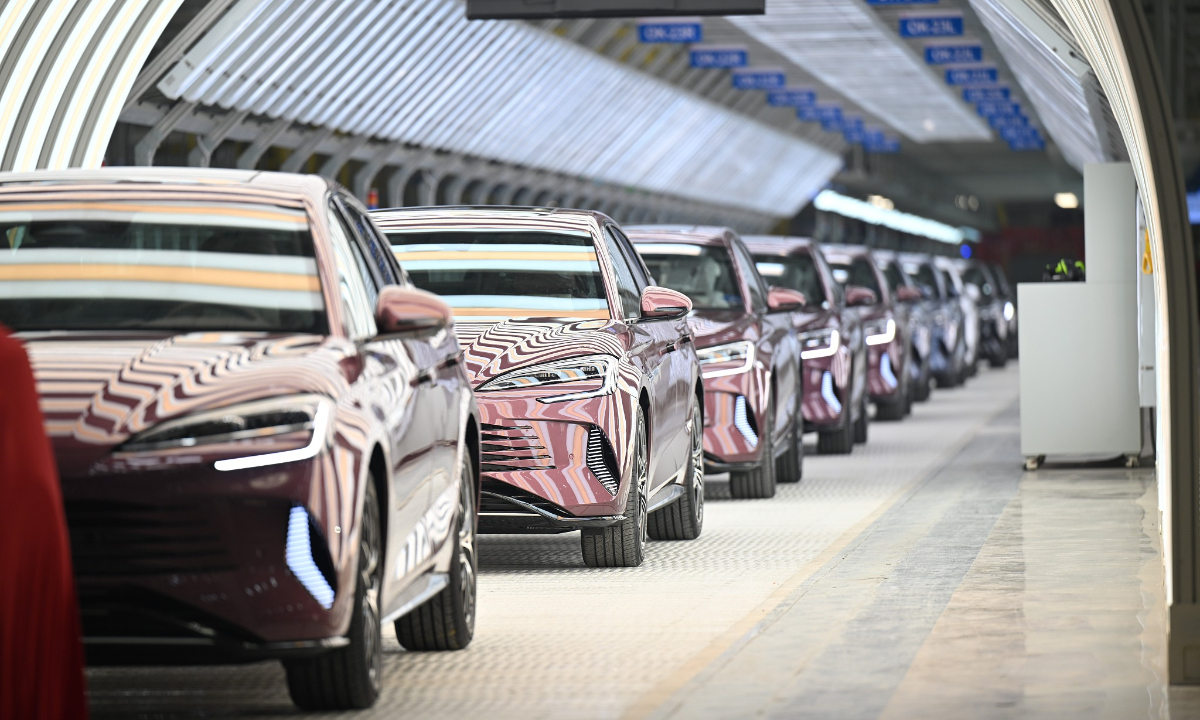 Business
Business
European Union Imposes Tariffs on Chinese EVs Citing Unfair Subsidies
The European Union (EU) has announced plans to impose tariffs on electric vehicles (EVs) imported from China. This move comes after an investigation by the EU Commission, the bloc’s executive arm, which concluded that Chinese EV producers benefit from unfair subsidies, harming European manufacturers.
Provisional Duties Aimed at Leveling the Playing Field
The EU Commission determined that the Chinese battery electric vehicle (BEV) industry receives significant government support, distorting the market and giving Chinese companies an unfair advantage. To address this imbalance, the EU plans to implement “provisional countervailing duties” on BEV imports from China. These tariffs, ranging from 17.4% to 38.1%, are intended to level the playing field for European EV producers.
The provisional duties will come into effect on July 4th, 2024, if no solution is reached through ongoing discussions with Chinese authorities. The EU Commission emphasizes their commitment to finding a resolution through dialogue, but they are prepared to implement definitive measures within four months if necessary.
EU Claims Unfair Advantage from Chinese Subsidies
Valdis Dombrovskis, the EU’s trade commissioner, defended the decision, highlighting the threat posed by subsidized Chinese imports to the European EV industry. He stressed that the tariffs are based on evidence gathered during the investigation.
China Disputes EU Claims, Calls Move “Protectionist”
China’s Ministry of Commerce has strongly condemned the EU’s decision, calling it “protectionist” and lacking a legal basis. The Ministry argues that their EV industry’s success is a result of fair competition and adherence to World Trade Organization (WTO) regulations. They believe the tariffs will disrupt the global automotive supply chain and harm both sides.
Tariff Breakdown Reflects Cooperation During Investigation
The EU Commission has established a tiered tariff system based on the level of cooperation from Chinese EV manufacturers during the investigation. Companies that cooperated fully received lower tariffs, while those that did not cooperate face the highest 38.1% duty. Major Chinese EV producers BYD, Geely, and SAIC all received varying tariffs based on their engagement with the EU probe.
The EU’s move to impose tariffs on Chinese EVs is likely to escalate trade tensions between the two economic giants. While the EU maintains this action is necessary to protect its domestic EV industry, China strongly denounces it as a protectionist measure harming fair competition in the global market.
Recent Posts
- Feeling the Pressure at 25–30? Here’s Why Young Adults Think Time Is Running Out
- BTS Is Back! All Seven Members Complete Military Service—What’s Next for the K-Pop Kings?
- Diddy’s Blockbuster Trial Nears Verdict: What’s Next for the Hip-Hop Mogul?
- “Squid Game” Final Season Sparks Global Buzz Ahead of Premiere
- Beyoncé and Jay-Z Reunite Onstage in Paris: A Night to Remember
- Texas Bets Big on Film: $1.5 Billion Incentive Law Aims to Bring Hollywood Home
- Starbucks Considers Selling Its China Business Amid Fierce Local Competition
- JetBlue Retreats from Miami and Seattle Amid Mounting Financial Pressures
- Barbra Streisand Calls Out Hollywood’s Pay Gap in Meet the Fockers Revelation
- Elon Musk’s Robotaxi Revolution: A Cosmic Ride into the Future


